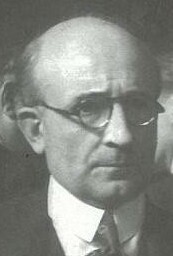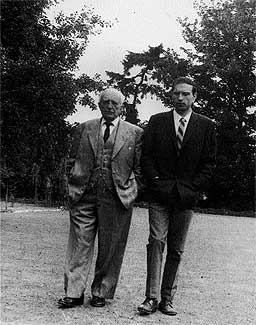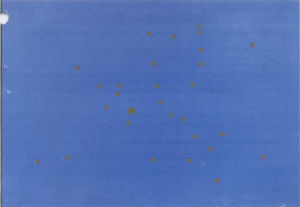Salvador de Madariaga facts for kids
Quick facts for kids
Salvador de Madariaga
|
|
|---|---|
 |
|
| 1st President of the Liberal International | |
| In office 20 April 1948 – 18 April 1952 |
|
| Preceded by | Position established |
| Succeeded by | Roger Motz |
| Personal details | |
| Born |
Salvador de Madariaga y Rojo
23 July 1886 A Coruña, Galicia, Kingdom of Spain |
| Died | 14 December 1978 (aged 92) Locarno, Ticino, Switzerland |
| Nationality |
|
| Other political affiliations |
Mont Pelerin Society |
| Spouses |
Emilia Rauman
(m. 1970; Constance Helen Margaret
(m. 1912; |
| Children | 2, Isabel and Nieves |
| Occupation |
|
| Awards | Charlemagne Prize (1973) |
Salvador de Madariaga y Rojo (born July 23, 1886 – died December 14, 1978) was an important Spanish diplomat, writer, and historian. He was also a pacifist, meaning he believed in solving problems peacefully. He was nominated for the Nobel Prize in Literature and the Nobel Peace Prize. In 1973, he won the Charlemagne Prize for his work.
Contents
Early Life and Education
Salvador de Madariaga was born on July 23, 1886, in A Coruña, a city in Galicia, Spain. He later moved to Paris, France, where he studied engineering and earned his degree.
Career Highlights
After finishing his studies, Madariaga returned to Spain. He worked as an engineer for a railway company. During this time, he met many important Spanish thinkers and writers.
Journalism and International Work
In 1916, he moved to London to work as a journalist for The Times newspaper. He also started writing his own essays. In 1921, he joined the League of Nations, an organization created after World War I to promote peace. He worked in its press office and later led the section focused on Disarmament, which meant trying to reduce the number of weapons countries had.
From 1928 to 1931, he taught Spanish at Oxford University in England. During this time, he wrote a book called Englishmen, Frenchmen, Spaniards, which explored the different ways people from these countries think.
Diplomacy and Politics
In 1931, when Spain became a republic, Madariaga was chosen for important roles. He became Spain's ambassador to the United States. An ambassador is a country's official representative in another country. He also became Spain's permanent delegate to the League of Nations, a job he held for five years.
In 1932, he led a meeting of the League of Nations Council. He strongly spoke out against Japan's actions in Manchuria, China. Because of his strong words, people nicknamed him "Don Quijote de la Manchuria". From 1932 to 1934, he also served as Spain's ambassador to France. In 1933, he was elected to the Spanish Parliament and worked as both the Minister for Education and the Minister for Justice.
Life in Exile
In July 1936, a big conflict called the Spanish Civil War began in Spain. Madariaga, who believed in freedom and individual rights, left Spain and went to live in England. He spoke out against the new government in Spain and helped organize people who also opposed it.
Working for European Unity
Madariaga was a strong supporter of a united Europe. In 1947, he helped write the Oxford Manifesto, which outlined ideas about freedom and democracy. He also took part in the Hague Congress in 1948, where he led the Cultural Commission. In 1949, he helped create the College of Europe, a university for students from different European countries.
Later Life and Return to Spain
In 1973, he received the Charlemagne Prize for his efforts to bring Europe closer together and promote peace. After the Spanish government changed in 1976, he returned to Spain. He became a member of the Royal Spanish Academy, a group that works to protect the Spanish language.
Personal Life

In 1912, Salvador de Madariaga married Constance Archibald, who was a historian from Scotland. They had two daughters, Nieves Mathews and Isabel de Madariaga. Constance passed away in 1970. Later that year, Madariaga married Emilia Székely de Rauman, who had been his secretary for many years.
Salvador de Madariaga y Rojo died on December 14, 1978, in Locarno, Switzerland, when he was 92 years old.
Awards and Honors
Madariaga received many awards during his life, including:
- Honorary Member of the Royal Academy of Spain (1936)
- Hansischer Goethe-Preis from the University of Hamburg (1972)
- Charlemagne Prize (1973)
Legacy
The Madariaga European Foundation is named after him. This foundation works to promote his idea of a united Europe, believing it will lead to a more peaceful world. The College of Europe also named its 1979–1980 academic year in his honor.
In 2011, a special blue plaque was placed on his former home in Oxford, England. This plaque honors important people who lived there. His daughter Isabel helped unveil it.
Selected Writings
Salvador de Madariaga wrote many books and essays in Spanish, English, French, and German. One of his most famous novels is El Corazón de Piedra Verde (Heart of Jade). He also wrote about famous historical figures like Christopher Columbus and the history of Latin America.
Here are some of his books:
- The Sacred Giraffe (1925) - a science fiction novel
- Englishmen, Frenchmen, Spaniards: An Essay in Comparative Psychology (1929)
- Disarmament (1929)
- Christopher Columbus (1940)
- The Rise of the Spanish-American Empire (1947)
- The Fall of the Spanish-American Empire (1947)
- Bolivar (1952)
- Morning without Noon (1973)
- El Corazón de Piedra Verde (1942)
- Spain: a Modern History
- Hernán Cortés – Conqueror of Mexico (1941)
- On Hamlet (1948)
- Latin America, Between the Eagle and the Bear (1962)
See also
- Contributions to liberal theory
- List of peace activists
- In Spanish: Salvador de Madariaga para niños
 | Lonnie Johnson |
 | Granville Woods |
 | Lewis Howard Latimer |
 | James West |


